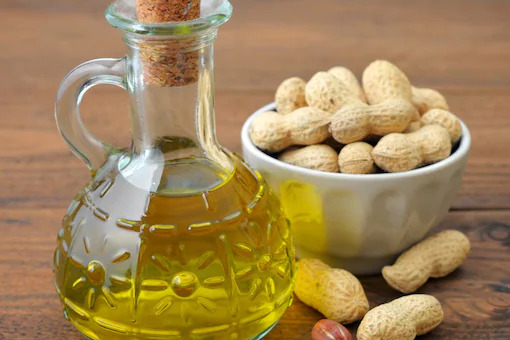Here’s a culinary rule of thumb: wherever feasible, replace solidified fats at room temperature such as butter with fluid fats (such as various oils). Oils, in general, are better for your heart, and peanut oil, in particular, is coveted for its health benefits and culinary characteristics.
Peanut oil, also called groundnut oil or arachis oil, is rich edible vegetable oil with a pronounced peanut flavour and smell obtained from peanuts, a low-growing plant.
HOW PEANUT OIL IS GOOD FOR THE HEART?
Peanut oil is rich in both monounsaturated (MUFA) and polyunsaturated (PUFA) fats, which have all been widely studied for their involvement in heart disease prevention. Taking unsaturated fats has been shown to reduce some risk factors connected with heart disease.
High levels of LDL cholesterol and triglyceride levels in the blood, for example, have been associated to an increased risk of heart disease. Many studies have demonstrated that substituting MUFAs or PUFAs for saturated fats will lower LDL cholesterol and triglyceride levels.
According to a major analysis conducted by the American Heart Association, lowering your saturated fat intake while increasing your monounsaturated and polyunsaturated fat intake might reduce your risk of heart disease by up to 30%.
Peanut oil is very high in calories because of its fatty acid content. However, this oil is rich in mono-unsaturated fatty acids (MUFA) that helps in lowering bad cholesterol and increasing good cholesterol in the blood.
WHAT ARE THE OTHER BENEFITS OF PEANUT OIL?
Peanut oil is a good source of antioxidants.
Peanut oil is a wonderful source of essential Vitamin E. Within the body, this vitamin functions as an antioxidant. It aids in the maintenance of your immunity and metabolism, among other things.
Aids in blood flow improvement
Linoleic acid, found in peanut oil, is a precursor to prostaglandins. Prostaglandin is essential for many vital bodily activities, including the contraction and dilatation of blood vessels and other muscles.


